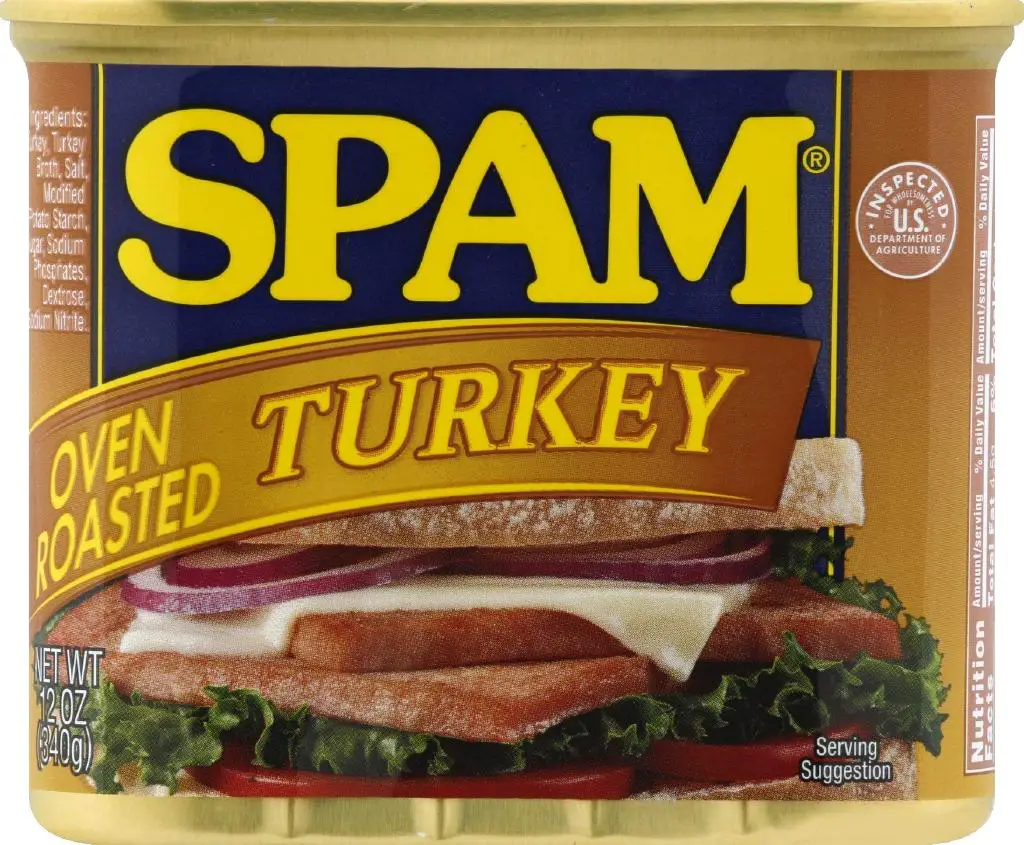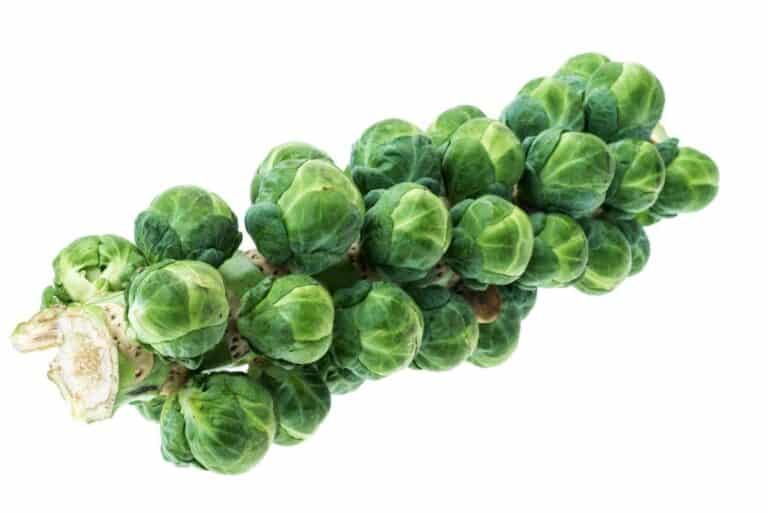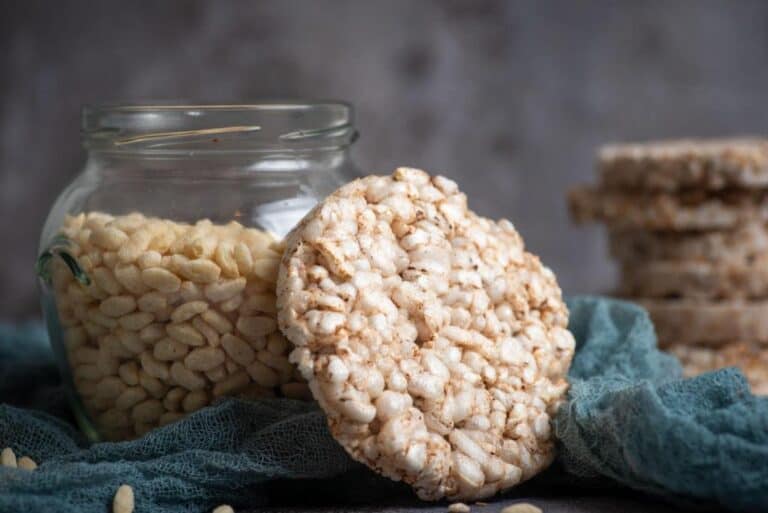Is Turkey Spam Healthy or Bad for Your Health?

In the fast-paced world we inhabit, convenience often takes precedence, even when it comes to the foods we consume. And that’s where turkey spam enters the culinary stage—a convenient yet controversial character in the world of processed meats. So, is turkey spam healthy, a nutritious choice, or a hidden health hazard?
Turkey Spam is a canned meat product made from ground turkey and other ingredients, and it is a healthier alternative to classic Spam.
This article embarks on a quest to unearth the reality behind the canned turkey sensation, providing you with a comprehensive exploration of its nutritional content, ingredients, and potential effects on your health.
Turkey spam may not be everyone’s darling, but understanding its role in your diet is the first step toward making informed choices about what you put on your plate. Let’s embark on this flavorful journey of discovery.
What is Turkey Spam?
Turkey spam is a fascinating food product that has gained popularity in recent years. But what exactly is turkey spam? Essentially, it is canned meat made from ground turkey that has been mixed with various spices and additives to enhance its taste and shelf life.
While it may sound similar to the traditional canned ham product, turkey spam offers a healthier alternative. It is lower in fat and calories compared to its pork-based counterpart, making it an attractive option for those looking to reduce their intake of saturated fats.
One of the main benefits of turkey spam is its versatility. It can be used in a wide array of recipes, such as sandwiches, stir-fries, or even chopped up and added to salads for an extra protein boost. What’s more intriguing about turkey spam is that it can be enjoyed straight out of the can without any additional cooking required—perfect for quick and easy meals or camping trips.
Furthermore, some brands now offer low-sodium versions, addressing concerns regarding the high sodium content often associated with processed meats.
When considering whether turkey spam is healthy or bad for your health, you need to take into account your overall dietary habits and moderation. While turkey spam can be part of a balanced diet, relying solely on this type of protein might not provide all the essential nutrients our bodies need on a daily basis. Therefore, while indulging in this convenience food occasionally can certainly fit into a well-rounded eating plan, variety should always be encouraged.
Table 1: Key Facts About Turkey Spam
| Fact | Information |
| Ingredients | Turkey, water, salt, modified potato starch, sugar, and more |
| Calories (per 100g) | Approximately 100–120 calories. |
| Protein Content (per 100g) | Around 10–12 grams |
| Fat Content (per 100g) | Usually 7-9 grams. |
| Sodium Content (per 100g) | Varies, but can be high (see label for specifics). |
Now that we have a basic understanding of what turkey spam is, let’s explore its nutritional profile and consider whether it’s a healthy choice.
Nutritional Content of Turkey Spam
Protein Content
One notable aspect of turkey spam is its protein content. It’s rich in protein, with around 10–12 grams per 100 grams of product. Protein is essential for the growth and repair of our body tissues and can be a valuable part of a balanced diet.
Fat and Calories
On the flip side, turkey spam contains a moderate amount of fat and calories, with approximately 7-9 grams of fat and 100–120 calories per 100 grams. While this isn’t excessive, it’s crucial to keep an eye on your overall calorie and fat intake, especially if you’re watching your weight.
Sodium Levels
One of the more concerning aspects of turkey spam is its sodium content, which can vary among different brands. Excessive sodium intake can lead to high blood pressure and other health issues. It’s essential to read the label for specific sodium levels and consume this product in moderation.
Ingredients and Preservatives
Turkey spam’s ingredient list typically includes a mix of turkey meat, water, salt, modified potato starch, sugar, and various preservatives. While some of these ingredients are necessary for preservation, they may not align with a clean-eating philosophy.
Health Benefits of Turkey Spam
Convenience
One of the primary advantages of turkey spam is its convenience. It’s a ready-to-eat product that doesn’t require refrigeration until it’s opened. This makes it an appealing option for camping trips, picnics, or as an emergency food supply.
Source of Protein
As mentioned earlier, turkey spam is protein-rich, which can be beneficial for individuals who struggle to meet their protein needs. It’s a quick and easy way to add protein to your diet, especially if you’re in a hurry.
Versatility
Turkey spam can be used in various recipes, from sandwiches to omelets and pasta dishes. Its distinct flavor can add a unique touch to your meals.
Risks and Considerations
While turkey spam has some merits, there are also important considerations and potential drawbacks.
High Sodium Content
The elevated sodium levels in turkey spam can be a concern for those with high blood pressure or heart problems. Be mindful of your sodium intake and consider other lower-sodium protein sources.
Processed Nature
Turkey spam, like other processed meats, contains additives and preservatives that some individuals may want to avoid in their diets. If you’re pursuing a more natural and minimally processed eating plan, turkey spam may not align with your goals.
Balance and Moderation
As with any food, the key to a healthy diet is balance and moderation. While turkey spam can be part of a balanced diet, it should not be the sole source of your protein. Combine it with other lean protein sources and plenty of fruits and vegetables.
Related: Spam Turkey Carving
Comparison of Turkey Spam vs. Fresh Turkey
Let’s not forget the obvious comparison: turkey spam vs. fresh turkey. Fresh turkey is undoubtedly the healthier choice. It’s leaner, less processed, and more natural. It’s also less likely to contain additives and preservatives. However, the convenience of turkey spam cannot be denied.
Table 2: Turkey Spam vs. Fresh Turkey Comparison
| Aspect | Turkey Spam | Fresh Turkey |
| Processing | Heavily processed with additives | Minimally processed, natural |
| Nutritional Value | Less nutritious due to processing | Rich in nutrients, especially lean protein |
| Convenience | Extremely convenient for on-the-go | Requires cooking and is less convenient |
| Taste | Distinct processed taste | Natural turkey flavor |
Is Turkey Spam Healthy? Moderation is the Key
Moderation is the golden rule when it comes to maintaining a healthy diet. While indulging in the occasional treat is perfectly acceptable, it’s essential to practice portion control to ensure a balanced eating plan.
This principle applies not only to our favorite snacks but also to processed meats like turkey spam. Although moderation allows for enjoyment, excessive consumption of turkey spam can be detrimental to our health.
Finding the ideal balance involves listening to our bodies and recognizing the signals they send us. Instead of mindlessly devouring an entire can of turkey spam in one sitting, understanding portion control helps us make smarter choices.
By reducing serving sizes and complementing them with whole, nutrient-rich foods like vegetables or whole grains, we create a more balanced meal that nourishes both body and mind.
Ultimately, moderation is about mindful eating—paying attention to what we consume and how it affects us. Incorporating variety into our meals and being conscious of portion sizes enables us to enjoy a wider array of foods without overindulging in any single one.
By adopting this approach with regard to turkey spam or any other processed meat, we can attain balance in our diets while still savoring those guilty pleasures from time to time
More: Does Spam Contain Beef?
Turkey Spam in Various Diets
Turkey Spam isn’t your typical health food, but it has managed to find a place on the plates of individuals following diverse dietary paths. Let’s explore its role in keto, paleo, and low-carb diets, providing insight into how this processed delight can fit into your chosen regimen.
Keto Diet:
For those embracing the high-fat, low-carb keto lifestyle, turkey spam offers a quick protein fix with minimal carbs, making it a feasible option. Just keep an eye on the sodium content, which can vary among brands.
Paleo Diet:
In the paleo realm, where natural and unprocessed foods rule, turkey spam might raise some eyebrows. Its ingredient list with additives and preservatives doesn’t align perfectly with the paleo philosophy, but moderation and occasional indulgence are possible.
Low-Carb Diet:
Turkey spam’s low carb count makes it a potentially favorable choice for low-carb enthusiasts. It fits the bill if you’re aiming to keep your carb intake in check.
When it comes to incorporating turkey spam into balanced meal plans, creativity is key. While not a health food, it can be a protein-packed addition to your plate. Mix it with fresh veggies, or use it to add a savory twist to breakfast omelets. However, balance is essential; don’t let turkey spam dominate your daily diet.
Dietitians and nutritionists often recommend viewing turkey spam as an occasional treat rather than a dietary staple. They emphasize the importance of a varied diet, rich in whole foods, fruits, vegetables, and lean proteins. While turkey spam has its appeal in terms of convenience, it shouldn’t replace fresh, unprocessed protein sources in your diet. It can be part of your menu, but in moderation.
Conclusion
So, is turkey spam healthy or bad for your health? The answer largely depends on your dietary goals and preferences and how you incorporate it into your meals. While turkey spam is a convenient source of protein, its high sodium content and processed nature warrant caution.
If you choose to include turkey spam in your diet, do so in moderation and balance it with fresher, less processed foods. Remember, a healthy diet is all about variety and making informed choices that align with your individual health and nutrition goals.
In the end, turkey spam can be part of a diverse diet, but it should not be the sole focus of your culinary adventures. As with most things in life, the key is balance and moderation.
FAQs on Health Benefits of Turkey Spam
Is Turkey Spam healthier than regular Spam?
Turkey Spam is generally considered healthier than regular Spam due to its lower fat and sodium content. However, it is still a processed meat and should be consumed in moderation as part of a balanced diet.
What are the main ingredients in Turkey Spam?
The main ingredients in Turkey Spam typically include mechanically separated turkey, water, salt, modified potato starch, sugar, and various preservatives and flavorings.
Can Turkey Spam be considered a good source of protein?
Yes, Turkey Spam can be considered a source of protein, providing a moderate amount per serving. However, it is important to balance its consumption with other lean protein sources and whole foods.
How does the sodium content in Turkey Spam affect blood pressure?
High sodium content in Turkey Spam can contribute to elevated blood pressure, potentially increasing the risk of cardiovascular issues. Monitoring sodium intake from processed foods is crucial for maintaining heart health.
What are some healthier alternatives to Turkey Spam?
Healthier alternatives to Turkey Spam include fresh turkey, chicken, or other lean meats that can be prepared at home without the additives and preservatives typically found in processed meats.
Are there any specific dietary guidelines for consuming processed meats like Turkey Spam?
It is advisable to consume processed meats like Turkey Spam in moderation and balance their intake with whole, unprocessed foods rich in essential nutrients. Additionally, adhering to dietary recommendations for sodium intake is crucial.






